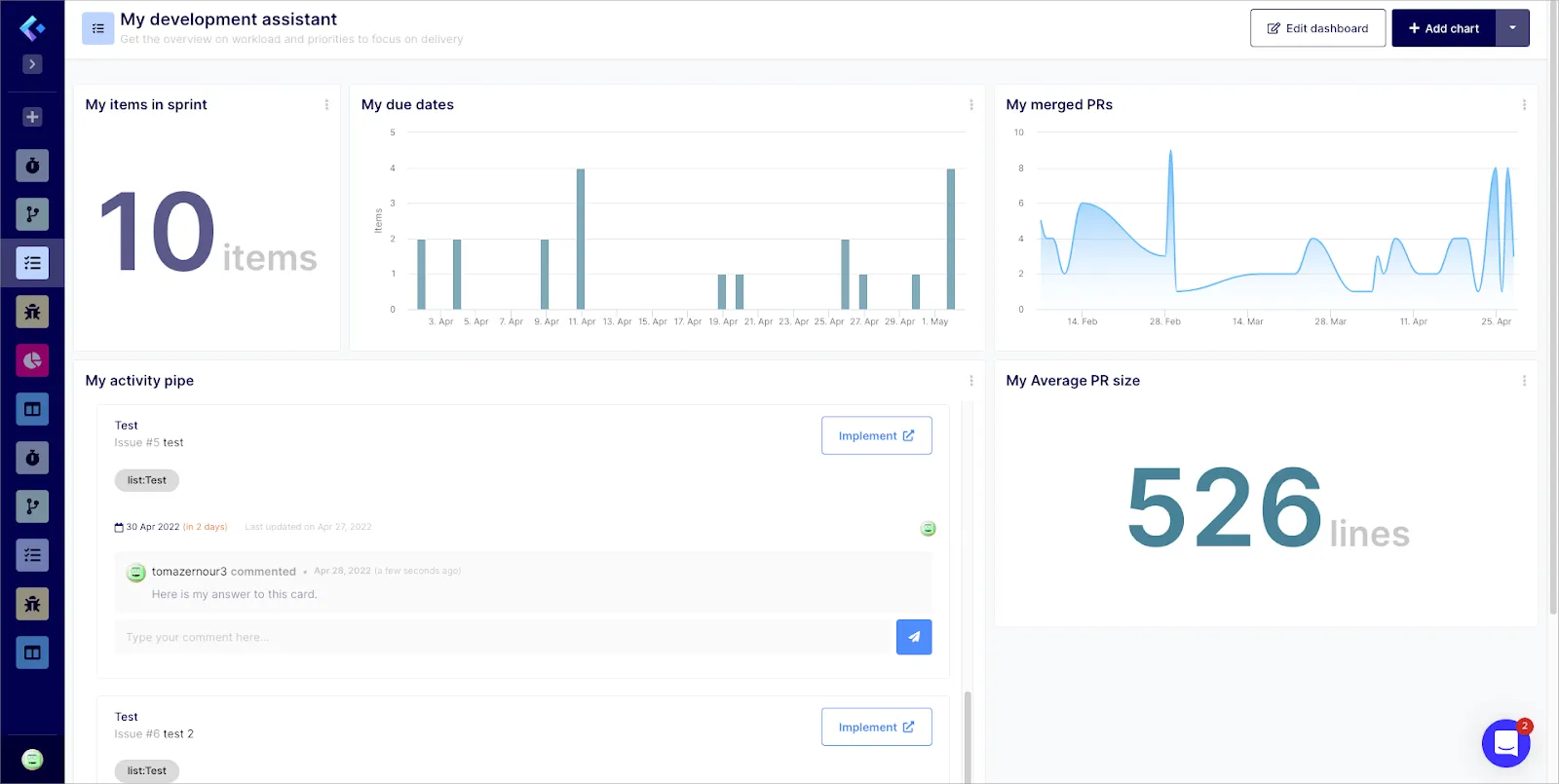The Role of a Software Engineer

Roles, responsibilities and skills you need to be successful as a software engineer

Roles, responsibilities and skills you need to be successful as a software engineer

Software engineers are essential to software development in every industry. They are the people who find and solve bugs, develop new features and release product updates. Software engineers use programming languages to create, enhance and maintain software products. Their job is challenging because they need to understand customers’ needs, think of solutions and then convert it all to code.
Software engineers typically have advanced knowledge of computer science principles, software development methodologies, data structures and algorithms. They might specialize in a certain area or have general skills in software engineering that can be applied in multiple fields. Usually, software engineers have a bachelor’s degree in computer science or another related field as well as relevant work experience.
This article aims to explore:
Let’s dive in!
A software engineer is a person who designs, develops and tests the computer software that runs a company’s core systems and products. They work on everything from mobile apps to enterprise-wide web applications. They may also be involved in building the internal infrastructure that supports their company’s software.
There are many different types of software engineers. Some focus on creating highly optimized, high-performance code while others are more concerned with reliability, maintainability and scalability. Some specialize in the creation of web applications while others focus on custom mobile apps. However they specialize, they all have one thing in common: they love to solve complex problems with computers.
Software engineers can work full-time or part-time, remote or in-house, depending on their personal schedule and preference. But regardless of where they work, they all face the same challenges: advancing their projects and making sure people will use their products and features. In many ways, this is what makes software engineering so rewarding. Check out our article on software engineers and how to become one!
The job description for a software engineer typically begins with a summary of requirements. The role often requires a bachelor's degree in software, math or science — but more and more self-learners are now accessing these roles. In addition, you should have a broad knowledge of computer systems and development languages such as C++ or Java, to name a few. The specific scope of the job determines the skills required, but most employers want candidates who can provide innovative problem-solving, strong analytical skills, teamwork, flexibility, a desire to learn, originality and communication skills. Further, you need a good balance of hard and soft skills to obtain a role.
The interview process for software engineers often involves a screening interview with human resources, an interview with the hiring manager and, most of the time, an assessment exercise. The goal of the assessment is to validate your core competencies and see how you cope with problem-solving and demonstrate communication with peers.
Knowing one or more programming languages is the basic requirement to become a software engineer. Each programming language has its own unique syntax, which makes it different from every other language. Knowing the syntax of a programming language will make it easier for developers to write code in that language.
Many programmers also consider learning a programming language to be an essential skill for any software engineer. When you know more about the inner workings of a computer, you are able to build software that is more efficient and reliable. In addition, knowing programming languages can open up new career opportunities. For example, many companies now require candidates to have some knowledge of Java and/or C++ when they are looking to hire a software engineer.
Problem-solving and analytical thinking are critical skills for software engineers because they enable you to understand the requirements of a system, identify potential solutions, and evaluate those solutions to ensure they work as intended.
In order to solve problems, software engineers must be able to think analytically. This requires a range of skills including effective communication, problem-solving and critical thinking. An understanding of the different types of data is also key. Knowing the difference between structured data (such as columns and rows in tables) and unstructured data (such as text and images) can help software engineers recognize when there are issues with the way data is being presented.
Analytical thinking is important because it helps software engineers evaluate different options or possible outcomes. It also allows them to predict future events or outcomes based on current conditions. To practice analytical thinking, software engineers ask themselves questions such as, “What if…?” or “What if I change this…?”. They also use tools like spreadsheets or even simple tally marks (i.e., 1 + 1 = 2) to keep track of their progress. Additionally, they use dashboards and reporting capabilities, like Keypup’s Development Assistant dashboard, to track performance.

As a software engineer, it is essential to possess a wide range of skills in order to maintain a successful product. This includes the ability to understand and analyze complex data sets and make sense of large amounts of information. In addition, software engineers must be able to work well under pressure and respond quickly when new issues arise. For example, they must be able to communicate clearly in written and verbal form, as well as be able to think on their feet and come up with creative solutions when things get tough. Further, it is important for candidates to demonstrate a strong understanding of how products work and how to keep them running smoothly.
Software engineers need to constantly innovate in order to create new and improved software. For example, they can make changes to the code of their existing software or write new code entirely from scratch. In addition, they can make changes to the way that the software is structured or make changes to how the software is delivered.
To be an effective innovator, a software engineer must be able to think outside of the box, be curious and be willing to learn. It is also helpful for them to be able to communicate clearly with other members of the team so that they are able to share ideas and get feedback early on in the development process.
Software engineers are expected to be good at both planning and project management. If you don’t know how to plan your work, it will be very difficult for you to manage your workload. With everything that there is to do in the software industry, it can be a challenge to stay on top of all of it. But if you have good planning and project management skills, you will be able to stay on top of things much easier.
Time management is also critical to the role of software engineer. There are many tasks involved and you don't want to get behind schedule. There are tools available to support engineering teams with project cadence and completion. For example, here's a Keypup development dashboard designed to help you manage your time efficiently and keep track of your progress.

While time and project management skills are required for all software developers, based on the size of the engineering organization, you may also work with a project manager (PM). PMs are responsible for coordinating and leading a project from start to finish. The role of a PM typically involves setting goals for the project, recruiting team members, planning and monitoring progress, communicating with stakeholders, and resolving issues as they arise.
Typically, a PM is an expert in all aspects of software engineering, including requirements engineering, design, testing and deployment. In some organizations, the PM may have other titles as well: scrum master, technical lead, or even CTO in smaller startups.
In software development projects there are many jobs that play an important role in the success of the product. Some of those roles include software engineer, software architect, SREs, DevOps manager, product manager and project manager, to name a few. Each role has its own set of responsibilities and when completed correctly can be very beneficial to the overall success of the product. A good project manager should understand each role's responsibilities and how they interact with one another so that they can best utilize all resources available to them to complete their goal.
The skills needed to be a software engineer vary somewhat depending on the type of software you’re working on. However, there are a few basic skills that nearly all engineers need. These include strong math and computer science skills, as well as an ability to work well under pressure and stay organized. Beyond these basics, however, it’s important to have specific skills that are relevant to your field. For example, if you’re working on artificial intelligence software, you should have specialized knowledge in AI. If you’re working on mobile software, you should know how to develop for mobile devices. .
There are also a number of other qualities that can make you a successful software engineer. You should be able to stay calm under pressure, be detail-oriented, be able to multitask, have good interpersonal skills and the ability to work well with others. Even if you don’t have all of these qualities right away, it’s possible to learn them over time as you gain more experience in your field.
Software engineers have a wide range of skills to meet the needs of today’s technology-driven industry. Understanding code is standard, and many software engineers have experience working with other technical roles such as software or web developers. However, there are many growing fields within the tech sector. For example, artificial intelligence is quickly becoming a hot topic in many industries, and software engineers who can work with AI and ML-related technologies will find themselves in high demand.
Additionally, companies are beginning to look beyond traditional programming skills to hire software engineers with strong communication skills and an ability to write clear, concise code that presents information clearly and easily. Regardless of the skills your potential employer is looking for, it’s important to keep in mind that you can’t be perfect at everything. You may want to seek professional development in areas where you may lack experience. You’ll find plenty of opportunities to learn new programming languages for free online. Check out sites like CodeCademy or freeCodeCamp to access free courses.
Engineers who specialize in software engineering typically have a bachelor’s degree in computer science or a related field. They also have at least some training and experience in one or more computer programming languages. In addition, software engineers might need to be certified or hold other professional qualifications, depending on the field and company size they work in.
All companies and hiring managers are different, therefore, there’s not a one-size-fits-all approach to recruitment. You may know a programming language that is close to the one the company is looking for on the candidate they want to hire. You may want to demonstrate your willingness to learn and take online courses to fill the gap. Some bigger companies may require additional certifications for compliance reasons. Don’t let this prevent you from applying, because some of the certifications may be included as part of the organization's onboarding program. Follow this link for an article on the top 10 certifications for software engineering certifications.
If you have any stories to share about how you became a software engineer, get in touch with us on Twitter and we’ll be happy to share it!